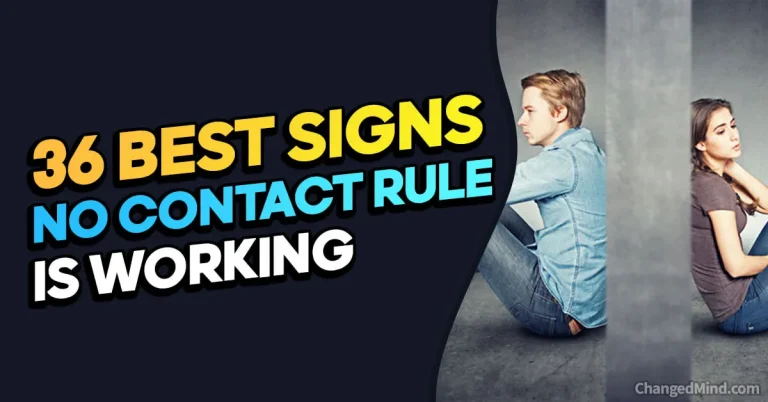Picture this: Sunday dinner, awkward glances, and your dear family firing questions like they’re at a job interview for your love life. We’ve all been there!
So, what to do if your family doesn’t like your boyfriend? Simple: don’t panic, grab some popcorn, and get ready for a rom-com-worthy guide on navigating this tricky situation. From witty comebacks to ninja-level diplomacy, we’ve got your back.
Let’s turn your family’s skeptics into your boyfriend’s fan club, shall we? Time to sprinkle some stardust on those family gatherings!
Key points we’ll delve into:
- The art of introducing Mr. Not-So-Popular
- Finding common ground: bonding opportunities
- Navigating sticky conversations with grace
- Setting healthy boundaries with the fam
- Giving love the final say: your decision matters
- Witty retorts for nosy Aunt Mildred (because, why not?)
Family approval is an essential aspect of any relationship. When your family doesn’t like your boyfriend, it can put a lot of strain on your relationship and cause unnecessary stress. You might find yourself stuck in a difficult situation, constantly trying to balance the love and support of your family with the love and connection you have with your significant other.
It’s easy to see why family disapproval can be so stressful. It’s natural to want the approval of the people closest to us, especially when it comes to something as important as our romantic relationships. But don’t worry, you’re not alone in this. Many couples have dealt with family disapproval and come out the other side stronger than ever.
In this article, we’ll explore 12 tips for dealing with family disapproval when your family doesn’t like your boyfriend. We’ll cover everything from communication to setting boundaries to taking care of yourself. By the end of this article, you’ll have the tools you need to handle the situation and come out on top.
12 Best Tips What to Do If Your Family Doesn’t Like Your Boyfriend
Here are 12 tips for what to do if your family doesn’t like your boyfriend:
- Reflect on why your family might disapprove: Try to understand where your family is coming from by reflecting on their concerns or objections.
- Communicate openly with your family: Honesty and respectful communication is key to resolving family disapproval. Start a conversation with your family to express your thoughts and feelings.
- Try to see things from your family’s perspective: Empathy and understanding can go a long way in resolving family disapproval. Put yourself in your family’s shoes to better understand their concerns.
- Set boundaries: Setting healthy boundaries with your family can help you navigate family disapproval in a positive way.
- Give it time: Time can sometimes be the best medicine. Give your family and your boyfriend time to get to know each other and work things out.
- Seek support: Seek support from friends, a therapist, or a support group to help you cope with family disapproval.
- Focus on your relationship: Prioritize your relationship with your boyfriend and focus on strengthening it.
- Take care of yourself: Don’t forget to take care of yourself during this stressful time. Practice self-care and engage in activities that bring you joy.
- Consider when it might be time to move on: Sometimes family disapproval cannot be resolved, and it might be time to consider ending the relationship.
- Remember that ultimately, the decision is yours: While it’s important to consider your family’s opinions, remember that the decision to stay with your boyfriend or end the relationship is ultimately yours to make. Trust yourself and do what feels right for you.

Consider why your family might disapprove
It can be challenging to understand why your family doesn’t like your boyfriend, especially when you feel like he’s the one for you. But it’s important to take a step back and try to see things from their perspective.
Here are some common reasons why families may disapprove of their children’s partners:
- Different values: Your family may have different values than your boyfriend, which can lead to conflict and disapproval. For example, if your family places a lot of importance on religion and your boyfriend doesn’t share those beliefs, your family may struggle to accept him.
- Bad first impressions: First impressions are everything, and if your boyfriend didn’t make a good one with your family, it can be tough to change their minds. Maybe he was nervous and didn’t come across well, or perhaps he said something that rubbed your family the wrong way.
- Jealousy: Sometimes, family members can be jealous of your relationship with your boyfriend. They may feel like they’re losing you or that you’re not spending enough time with them.
- Previous bad experiences: If your family has had bad experiences with your boyfriend in the past, it can be challenging to move past that and give him a second chance.
- Fear for your safety: In some cases, your family may disapprove of your boyfriend because they believe he’s not good for you or could potentially harm you in some way.

It’s essential to reflect on why your family might not like your boyfriend. Try to see things from their perspective and consider if any of the reasons above could be playing a role. Understanding their point of view can help you navigate the situation better and find a way forward.
For example, if your family values education and career success, but your boyfriend is more laidback and prioritizes travel and experiences, your family may worry that he’s not ambitious enough for you. By understanding this, you can reassure your family that your boyfriend is motivated and ambitious in his own way, and that his approach to life is one of the things you love about him.
Reflecting on why your family might disapprove of your boyfriend can also help you have more productive conversations with them. If you can anticipate their concerns, you can prepare responses and address their worries in a thoughtful and empathetic way. Ultimately, understanding their perspective can help you find a way forward that works for everyone.
Communicate openly with your family
When your family doesn’t like your boyfriend, it’s essential to communicate openly and honestly with them. It can be tempting to avoid the issue or sweep it under the rug, but that will only lead to more tension and conflict down the road.

Here are some tips for communicating effectively with your family:
- Be honest and respectful: Honesty is crucial, but it’s essential to be respectful and avoid attacking or blaming your family. Use “I” statements to express your feelings and avoid making sweeping generalizations.
- Pick the right time and place: Choose a time and place where everyone can be calm and relaxed. Avoid having the conversation in the heat of the moment or when tensions are already high.
- Start with a positive: Begin the conversation by expressing your love and appreciation for your family. Let them know that you value their opinions and want to hear their concerns.
- Listen actively: Active listening means giving your full attention to the person speaking and trying to understand their point of view. Avoid interrupting or dismissing your family’s concerns, even if you disagree with them.
- Find common ground: Look for areas of agreement and try to find a compromise that works for everyone. For example, if your family is worried about your boyfriend’s job stability, you could suggest that he start looking for more secure employment.
Remember, communication is a two-way street. It’s just as important to listen to your family as it is to express your own thoughts and feelings. By communicating openly and respectfully, you can begin to bridge the gap between your family and your boyfriend and find a way forward that works for everyone.

Try to see things from your family’s perspective:
When your family doesn’t like your boyfriend, it’s easy to get defensive and feel like they just don’t understand. But taking the time to see things from their perspective can be incredibly helpful in finding a way forward.
Here are some tips for putting yourself in your family’s shoes:
- Consider their values: Think about what your family values and why they might be concerned about your boyfriend. For example, if your family places a lot of importance on financial stability, they may worry that your boyfriend isn’t responsible enough with money.
- Imagine their fears: Try to imagine what your family might be afraid of. Are they worried that you’ll get hurt? That you’ll be unhappy? That you’ll make a mistake? Understanding their fears can help you address them more effectively.
- Be empathetic: Empathy means putting yourself in someone else’s shoes and trying to understand how they feel. Imagine how your family might feel if they were in your position, and try to validate their concerns.
- Keep an open mind: Even if you don’t agree with your family’s perspective, it’s important to keep an open mind and be willing to consider their point of view. Remember, they want what’s best for you and are coming from a place of love.
By seeing things from your family’s perspective, you can begin to address their concerns more effectively and find a way forward that works for everyone. Remember, empathy and understanding are essential to any healthy relationship, and they’re especially important when dealing with family disapproval.

Set boundaries
When your family doesn’t like your boyfriend, it can be tempting to try to please everyone and avoid conflict. But setting boundaries is crucial to maintaining your own emotional wellbeing and protecting your relationship.
Here’s why:
- Protect your relationship: Setting boundaries can help you establish your relationship as a separate entity from your family’s opinions and expectations. This can be especially important if your family tends to be overbearing or intrusive.
- Maintain your own identity: Your relationship is just one aspect of your life, and it’s important to maintain your own individuality and pursue your own interests and goals. Setting boundaries can help you do that by ensuring that you’re not constantly being pulled in different directions by your family’s expectations.
- Avoid resentment: If you’re constantly giving in to your family’s demands and ignoring your own needs and desires, it’s easy to start feeling resentful and angry. Setting healthy boundaries can help you avoid those negative emotions and maintain positive relationships with everyone involved.
Examples of healthy boundaries you can set include:
- Limiting contact: If your family tends to be critical or negative about your boyfriend, you may need to limit the amount of time you spend with them or the topics you discuss.
- Being clear about expectations: Let your family know what your expectations are when it comes to discussing your relationship. For example, you could say that you’re happy to hear their concerns but that you won’t tolerate any disrespectful comments or attacks.
- Being consistent: Once you’ve set boundaries, it’s important to be consistent and stick to them. This can be challenging, especially if your family is used to getting their way, but it’s crucial to maintaining healthy relationships and protecting your own wellbeing.
Remember, setting boundaries isn’t about being confrontational or aggressive. It’s about being clear and assertive about your needs and expectations, and finding a way forward that works for everyone involved. By setting healthy boundaries, you can protect your relationship and maintain positive relationships with your family at the same time.

Give it time
Dealing with family disapproval can be stressful and overwhelming, but sometimes, the best thing you can do is give it time. Here’s why:
- Allow for adjustment: Your family may need some time to adjust to your boyfriend and get to know him better. It’s natural for people to be resistant to change, especially when it comes to someone they care about.
- Demonstrate commitment: The longer you and your boyfriend are together, the more your family will see your commitment to each other. This can help to alleviate some of their concerns and build trust over time.
- Show growth: If your family has specific concerns about your boyfriend, give him time to address them and show that he’s willing to grow and improve. This can help to ease your family’s concerns and demonstrate that you’re in a healthy, supportive relationship.
While it can be difficult to be patient when you’re dealing with family disapproval, there are some things you can do to make the wait easier:
- Be positive: Try to remain positive and optimistic about the situation. This can help to reduce stress and anxiety and make it easier to deal with any negative comments or attitudes from your family.
- Stay connected: It’s important to maintain your relationships with your family, even if they don’t approve of your boyfriend. Keep in touch regularly, and try to find ways to connect that don’t involve discussing your relationship.
- Focus on the positive: Instead of dwelling on the negative aspects of the situation, try to focus on the positive. Talk about the things you love about your boyfriend, and share positive experiences you’ve had together.
Remember, giving it time doesn’t mean giving up. It’s important to keep working on your relationship and communicating openly with your family, but sometimes, a little bit of patience can go a long way in resolving family disapproval.

Seek support
Dealing with family disapproval can be tough, and sometimes it’s helpful to seek support from people who understand what you’re going through. Here are some ways to find the support you need:
- Talk to friends: Your friends can be a great source of support when you’re dealing with family disapproval. They can offer a listening ear, a different perspective, and some much-needed encouragement and validation.
- See a therapist: A therapist can help you work through your feelings and develop coping strategies to deal with family disapproval. They can also provide a safe, non-judgmental space to talk about your relationship and any other issues that may be contributing to the situation.
- Join a support group: There are many support groups out there for people dealing with family disapproval or other relationship issues. These groups can offer a sense of community and connection, as well as practical advice and emotional support.
Seeking support can be incredibly helpful when you’re dealing with family disapproval. Here are some ways that support can help:
- Provide validation: When you’re dealing with family disapproval, it can be easy to feel like you’re alone or that there’s something wrong with you or your relationship. But seeking support can help to validate your feelings and experiences and remind you that you’re not alone.
- Offer different perspectives: Sometimes, it can be hard to see things clearly when you’re in the middle of a difficult situation. Seeking support from others can offer new perspectives and insights that can help you make sense of what you’re going through.
- Help you cope: Dealing with family disapproval can be incredibly stressful and emotional. Seeking support can help you develop coping strategies to deal with those feelings in a healthy way and maintain your mental and emotional wellbeing.
Remember, seeking support isn’t a sign of weakness—it’s a sign of strength. Dealing with family disapproval can be tough, but with the right support, you can get through it and come out stronger on the other side.
Focus on your relationship
When you’re dealing with family disapproval, it can be easy to get caught up in trying to please everyone else and forget about your relationship.
But it’s important to prioritize your relationship and focus on building a strong foundation.
Here are some ways to do that:
- Communicate openly and honestly: Good communication is key to any healthy relationship. Make sure that you’re both communicating openly and honestly with each other about your feelings, needs, and concerns.
- Spend quality time together: Make time for each other, whether it’s a date night, a weekend getaway, or just a quiet night in. Spending quality time together can help to strengthen your connection and build intimacy.
- Show appreciation and gratitude: Don’t forget to show your partner that you appreciate and value them. Small gestures like saying “thank you,” leaving a love note, or doing something thoughtful can go a long way in making your partner feel loved and appreciated.
- Work on problem-solving together: Every relationship has its challenges, but it’s important to work on problem-solving together as a team. Instead of getting defensive or blaming each other, try to approach challenges as a shared problem that you can work on together.
By focusing on your relationship, you can build a strong foundation that can help you weather the challenges of family disapproval. Remember that you’re in this together and that you can work through it as a team.
Take care of yourself
Dealing with family disapproval can be stressful and emotionally draining. It’s important to take care of yourself during this time to ensure that you’re coping as well as possible. Here are some self-care practices that you can try:
- Practice mindfulness: Mindfulness is a technique that involves paying attention to the present moment without judgment. It can be a great way to reduce stress and anxiety. Try incorporating mindfulness into your daily routine by practicing deep breathing, meditation, or yoga.
- Get enough sleep: Sleep is essential for physical and emotional health. Make sure that you’re getting enough sleep each night and that you’re practicing good sleep hygiene, such as avoiding screens before bed and keeping your bedroom cool and dark.
- Exercise regularly: Exercise is a great way to reduce stress and boost your mood. Try to get at least 30 minutes of moderate exercise each day, whether it’s a walk around the block or a yoga class.
- Practice self-compassion: It’s easy to be hard on yourself during times of stress, but it’s important to practice self-compassion. Be kind to yourself and remind yourself that you’re doing the best you can in a difficult situation.
By taking care of yourself, you can better cope with the stress of family disapproval and maintain your emotional well-being. Remember that self-care is not selfish – it’s necessary for your own health and happiness.
Consider when it might be time to move on
As much as we want to believe that our families will eventually accept our partners, sometimes it just doesn’t happen. In some cases, family disapproval can become toxic and start affecting your mental health and well-being. It’s essential to recognize when it might be time to move on and prioritize your own happiness.
Consider the severity of the situation and how long it’s been going on. If you’ve tried all the tips mentioned above and there’s still no progress, it may be time to reassess the relationship. This can be a difficult decision to make, but sometimes it’s necessary for your own happiness.
Keep in mind that you deserve to be in a relationship where both you and your partner are respected and valued. If your family’s disapproval is causing harm to you or your relationship, it’s okay to let go and move on.
Final Thoughts
Dealing with family disapproval of your partner can be a challenging and stressful experience. However, it’s essential to remember that ultimately, you are the one who knows what’s best for you and your relationship.
It’s crucial to prioritize your own happiness and well-being, and to surround yourself with supportive people who will respect your choices.
Remember that family disapproval doesn’t necessarily mean the end of your relationship. With patience, communication, and empathy, it’s possible to work through family issues and build stronger relationships.
And if it’s time to move on, trust that there are plenty of other people out there who will appreciate and love you and your partner just the way you are.
How can I address the situation if my family doesn’t like my boyfriend?
Start by having an open and honest conversation with your family. Listen to their concerns and express your feelings, aiming for understanding and compromise.
Should I consider my family’s opinion about my boyfriend?
Yes, your family’s opinion is important, but ultimately, the decision should be yours. Balance their concerns with your own feelings and priorities.
What if my family’s dislike for my boyfriend is based on misunderstandings?
Clear up misunderstandings by encouraging communication between your family and your boyfriend. Allow them to get to know him better.
Can I ask my family to give my boyfriend a chance?
Absolutely, request that your family give your boyfriend a fair chance to prove himself. Sometimes, time and positive interactions can change their perception.
How can I maintain a healthy relationship with my family while dating someone they don’t like?
Strive for a balance by maintaining strong communication with your family and setting boundaries when necessary. Respect their concerns while asserting your choices.
Should I seek guidance from a trusted friend?
Yes, discussing the situation with a close friend can provide valuable outside perspective and emotional support.
What if my family’s disapproval is rooted in prejudice or bias?
Address the issue by educating your family about prejudice and bias, and advocate for the importance of acceptance and inclusivity.
How can I build a bridge between my family and my boyfriend?
Plan family activities or gatherings where your boyfriend can interact with your family in a relaxed setting, allowing them to see his positive qualities.
Is couple’s counseling an option if my family’s disapproval causes relationship strain?
Yes, couple’s counseling can help you and your boyfriend navigate the emotional challenges and find productive ways to deal with family issues.
What if my family’s concerns are valid?
If your family’s concerns are legitimate, consider their input and assess if any changes are needed in your relationship.
Should I distance myself from my family if they don’t like my boyfriend?
Avoid distancing yourself from your family; instead, focus on building bridges and maintaining connections while also nurturing your relationship.
How can I maintain my self-esteem if my family disapproves of my partner?
Focus on self-confidence by reminding yourself of your worth and the reasons you chose your partner. Seek support from friends and consider therapy.
Can I ask for my family’s support in a non-judgmental way?
Yes, express your need for their support without judgment. Communicate how their approval can positively impact your relationship and overall well-being.
What if my family’s dislike for my boyfriend leads to family conflicts?
Seek conflict resolution strategies, such as family meetings or mediation, to address issues and find common ground.
Should I prepare for the possibility that my family may never accept my boyfriend?
While it’s essential to hope for acceptance, be prepared for the possibility that your family’s opinion may not change. Focus on your own happiness and well-being.
Conclusion
Dealing with family disapproval can be a stressful and difficult situation, but it’s important to remember that you have control over your own happiness and relationships.
Here are 10 tips to help you navigate this challenging time:
- Assess your relationship.
- Understand your family’s perspective.
- Communicate openly and respectfully with your family.
- Try to see things from their point of view.
- Set healthy boundaries.
- Give it time.
- Seek support from friends, a therapist, or a support group.
- Prioritize your relationship with your partner.
- Take care of yourself during this stressful time.
- Consider when it might be time to move on.
Remember that ultimately, you have to make the decision that’s best for you and your relationship. It’s important to take your time and carefully consider your options, while also prioritizing your own mental and emotional well-being. Stay strong, and know that you are not alone.
FAQ
What should I do if my family doesn’t like my boyfriend?
It’s important to communicate openly and honestly with your family about your feelings and try to see things from their perspective. Set boundaries and focus on your relationship with your partner.
Should I break up with my boyfriend if my family doesn’t approve?
It ultimately depends on your individual situation, but it’s important to prioritize your own happiness and consider if the relationship is healthy and fulfilling for you.
What if my family’s disapproval is based on cultural or religious differences?
It’s important to have open and respectful communication with your family and educate them about your partner’s cultural or religious background. It may also be helpful to seek support from a therapist or support group.
How can I strengthen my relationship with my partner while dealing with family disapproval?
Focus on prioritizing your relationship and finding ways to strengthen your bond, such as spending quality time together and engaging in activities that you both enjoy.
What if my family’s disapproval is causing me a lot of stress and anxiety?
It’s important to prioritize your own self-care and seek support from friends, a therapist, or a support group. Remember that you deserve to be in a healthy and fulfilling relationship.






